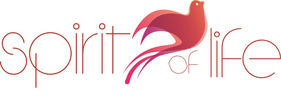|
By Karen Whistler
Spiritual Trauma. If these words send a chill down your spine, you may have been harmed by toxic theology or damaging church practices. I am so sorry if that is your experience. As I have learned, these situations are so deeply violating and disorienting. It cuts down to our core sense of belovedness when God is used as a justification to control others or a weapon to instill a sense of fear. All too often the church, which should be our sanctuary, has been the source of harm. This is real. And it is not okay. This post is quite personal to me. I didn’t have the language for it until recently, but a number of years ago I spoke at my previous church of the wrestling I had with faith amidst tremendous suffering. What I didn’t realize until years later was the extent of how my suffering was exacerbated by my faith community and messages from the pulpit. I felt grateful to land in the safety of the church where I first shared my story, but the lasting wounds are still being untangled in my heart and faith. My very own counselor, Hillary McBride recently released a podcast in collaboration with Sanctuary Mental Health Ministries that I pray will transform lives towards healing. We met Hillary when I was pregnant with our second child, nine years ago. She was part of a birth trauma counseling program through BC Women’s Hospital. Hillary helped Nate and I prepare to enter into the delivery room after a dangerous and volatile experience with our first child. She has been my therapist ever since. In the compelling Holy/Hurt podcast, Hillary explores what trauma is, as well as what it does to our bodies, minds, and spirits. She explains just how insidious spiritual trauma can be, particularly when our identity and sense of belonging are tied into the church families that have caused us harm. Leslie Roberts from Sanctuary Mental Health unpacks her own experience and announces the Holy/Hurt podcast here. This podcast is meant to be experienced in order. So, start at the beginning. Hillary dives into the technicalities of what we know about trauma. She validates the messages our bodies send us when things are not okay. Bodily messages that in my own church experience were labeled as “sin” and disobedience because they were viewed as questioning doctrine—further driving a wedge between the intuition of my spirit and my desire to obey “God” and be good. In truth, I’ve come to understand that these signals were the Divine voice of love speaking Wisdom to me. Honestly, I had to pace this out series out. To listen, to pause, then to give myself space to process before continuing on. If you do embark on listening, please be gentle with yourself. Whatever comes up is real and is telling you something. Listen to your body and pay attention to what the spirit brings up for you. And if Spiritual Trauma is not your experience, I challenge you to listen. To learn and to ask yourself how we as a body can create space for the spiritually wounded that is safe and honors the loving intent God has for each of us. If you like Hillary’s work, here are some additional resources from her: Mothers, Daughters, & Body Image: Learning to Love Ourselves as We Are (Link: https://hillarylmcbride.com/mothers-daughters-and-body-image/) The Wisdom of Your Body: Finding Healing, Wholeness, and Connection through Embodied Living (Link:https://hillarylmcbride.com/the-wisdom-of-your-body/) Other People’s Problems: (Link:https://www.cbc.ca/listen/cbc-podcasts/186-other-peoples-problems) a podcast where Hillary broadcasts real therapy sessions to reduce the stigma of therapy. Podcast episodes featuring Hillary (Link: https://hillarylmcbride.com/media/)
0 Comments
By Karen Whistler
When we lived in Vancouver, BC we knew a number of people who collaborated with or had affiliation with an organization called Sanctuary Mental Health Ministries. “Sanctuary Mental Health Ministries equips the Church to support mental health and wellbeing.” They ask the question: “How can a church become a sanctuary? A place where people with mental health challenges can feel safe, supported, and a sense of belonging?” Sanctuary has developed useful curriculum in the intersection of spiritual formation and mental health. The Sanctuary Course is available for free on their resource portal. Admittedly, I signed up for the course years ago but failed to completed the coursework. The content is well crafted and delivered from an organization that tenderly holds space for all experiences under the umbrella of faith. Writing this is a good reminder to myself to dig back in! Over the past year, Sanctuary has been collaborating with the music collective The Porter’s Gate. The final album was released last month. A few singles were shared leading up to the full album launch (some, featured on the Awakened Brains Playlist! Many of these songs already feel like old friends. With stylistic variety, the album reiterates again and again God’s endless pursuit of us within our darkest thoughts and places. The lyrics remind me that I am held. They carry a weight that transcends abstract notions of God’s love to a tangible sense of belonging to one another. Stream on their website. https://sanctuarymentalhealth.org/sanctuary-songs/ Additionally, “Since 2020, Sanctuary has devoted October to running a month-long mental health awareness campaign. With this week being Mental Illness Awareness Week in Canada and the U.S., and World Mental Health Day on October 10, it is a time of year with increased public interest in mental health.” Access their 5-day devotional here. Sanctuary will also be releasing content on social media channels throughout October. More information available on their blog. As we enter into the darkness of fall, I implore us all to consider holding space for the mental health of ourselves and others as a part of our spiritual practice. By Becky Brown Music has infiltrated my head and my heart. It's not my fault. I was surrounded. It was there in church, at camp, in school, at home, and in the car. It all rubbed off on me and then the music started pouring out of me too. I write songs to process my angst (and haircuts). I sing to mend the tears in my heart. I sing to put my children to sleep. I sing to bring light to the dark nights of winter. I sing to make the joyful moments a bit brighter. I sing because I can't not sing. And I blame you. I blame my parents (my dad has an amazing operatic yawn). I blame the band and choir directors of my youth. I blame the sopranos who stood next to me with their stronger voices. I blame the Indigo Girls. The people may come and go, but the music lives on. You can't stop it.
|
Sign up for weekly email updates. It is the best way to find out what is happening at Spirit of Life!
Archives
July 2024
Categories |
Spirit of Life Lutheran Church
8730 Phillips Road SE
Port Orchard, WA 98367
E: [email protected]
P: 360.876.5094
8730 Phillips Road SE
Port Orchard, WA 98367
E: [email protected]
P: 360.876.5094


 RSS Feed
RSS Feed